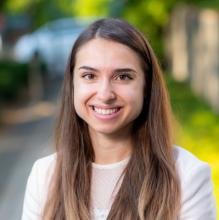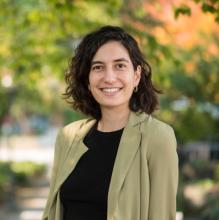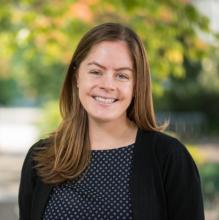As an anthropologist and dance enthusiast, I use dance as a lens through which to study human behavior, with the urban dance floor as the site par excellence to study the conditions that bring different people together in pleasurable environments, as consequences of postcoloniality, migration, and urban modernity.
Research Description
As an anthropologist and dance enthusiast, I use dance as a lens through which to study human behavior, with the urban dance floor as the site par excellence to study the conditions that bring different people together in pleasurable environments, as consequences of postcoloniality, migration, and urban modernity. I explore how people relate to themselves and to each other within this space, and how dancers negotiate different categories of identification and belonging within the intersections of nationality, race, ethnicity, gender, sexuality, and language. I aim to trouble the notion of “Dutchness”, and to contribute to scholarship on interculturality in plural societies. My research also works toward a historicization of the origins and developments of the Afro-Latin partner dance scene in the Netherlands, particularly in light of Dutch postcoloniality and Dutch cultural politics. For PSI, I will be exploring creative ways to visually showcase some of these stories.
What does being a Public Scholar mean to you?
Public scholarship to me means co-creating knowledge and translating research findings into creative formats so that they are more easily accessible to the general public. I believe that this can lead to stimulating conversations and critical new insights.
In what ways do you think the PhD experience can be re-imagined with the Public Scholars Initiative?
PSI enables structures of support for scholars to engage in creative modes of knowledge creation, translation and dissemination. To be able to engage with community and translate research findings into a format that is accessible and impactful beyond academia is immensely valuable and therefore significantly contributes to the PhD experience.
How do you envision connecting your PhD work with broader career possibilities?
My PhD studies in Gender, Race, Sexuality and Social Justice coupled with my background in cultural anthropology and international business management enable me to facilitate an understanding of the concept of ‘culture’ from many different perspectives, and I aim to contribute to research and education in the broadest sense. This could include bridging my academic knowledge with other sectors, by facilitating workshops on intercultural communication for international organizations, or by contributing to public discourse.
How does your research engage with the larger community and social partners?
I would not be able to produce much academic knowledge without the dedication of my respondents who generously shared their stories and experiences with me, whose narratives shine light on the creolized elements of contemporary Dutch identity. Developing videographic material with them to showcase some of these narratives allows me to share research findings in an accessible way.
Why did you decide to pursue a graduate degree?
When I was in business school a long time ago, I was, admittedly, most interested in partying with other international students, or, to put it academically, in intercultural communication. After working in business for a while, I decided to go back to school to study culture and communication in more detail by pursuing a MA in cultural anthropology where I had the opportunity to gain an understanding of human behaviour and cultural difference across time and space. During my MA research, I was able to combine my love for night-life culture with my academic interests by conducting research on the Dutch kizomba dance scene. My research findings stirred up many new questions, which I decided to pursue in a PhD.
Why did you choose to come to British Columbia and study at UBC?
I applied to UBC because I wanted to work with some of the faculty in my department and I liked the nature and active lifestyle that Vancouver has to offer.
Public scholarship to me means co-creating knowledge and translating research findings into creative formats so that they are more easily accessible to the general public. I believe that this can lead to stimulating conversations and critical new insights.




